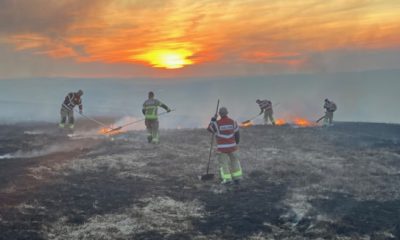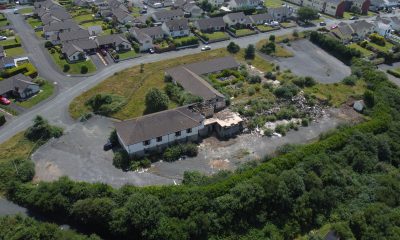Farming
Hard Brexit threat to west Wales’ farmers
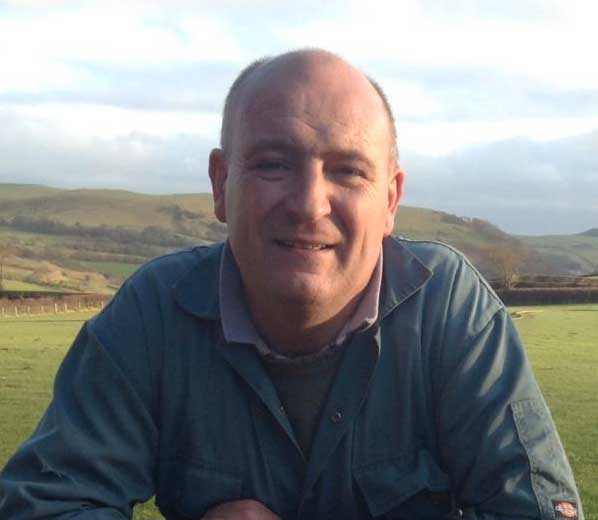
BREXIT threatens major upheaval for Welsh agriculture, with small upland farms particularly threatened.
A report from the Public Policy Institute for Wales (PPIW) suggests that there is a massive risk to west and north Wales.
LIVESTOCK FARMING THREATENED
Its analysis suggests that the most likely changes in trading conditions would tend to disadvantage the competitive position of Welsh agriculture in its main current markets and trading competitors (particularly in sheep and beef).
The report also anticipates generally reduced levels and scope of public funding by comparison with those the sector has enjoyed in recent years.
However, within these challenging probable change scenarios, there are opportunities if farm businesses are enabled to respond adaptively.
Some farms and sectors face much greater challenges than others, which implies uneven structural change across significant areas:
- a decline in the economic viability of sheep production is likely, with these farm businesses especially vulnerable to changes in both market access arrangements and public funding support – this could increase pressure on rural services;
- accordingly, north and west Wales are likely to face stronger negative impacts than the south and east, where more potentially positive and diverse impacts can be expected among dairy, horticultural, mixed and other farm types.
MARKET RESPONSE UNCERTAIN
How key food and forestry processors and retailers respond to the Brexit process, and their willingness to invest in Wales and Welsh products, will be an important factor. Their patterns of operation may change in response to shifting economic and market conditions.
Managing the challenges faced is key, to prevent undesirable impacts on natural capital, landscape quality and community identity.
Three policy directions are recommended:
- Fostering resilience in farm and other land management businesses; supporting successful adaptation, enhanced efficiency, diversification, adding value and intergenerational transfer, as well as some moves from farming into other sectors;
- Investing in longer-term partnerships between government, food retailers, rural service providers, and commercial lenders to promote stronger business networks and SME infrastructure across Wales;
- Designing a future funding framework to support natural resource management and rural vitality in Wales.
THINK OUTSIDE THE BOX
Report author Prof Janet Dwyer, from the University of Gloucester, argued that while farming only employs a relatively small proportion of people directly, its success has a ripple effect across rural communities.
“People need to be more willing to think outside the box, to think about working together, think about understanding the way in which one person‘s business affects what other people do because farming affects the landscape, which affects tourism, which is an important sector in Wales, so a lot of these things are connected,” she said.
The CCRI Director and Professor of Rural Policy makes a number of recommendations to overcome these potential challenges. These include investing in better business planning and adjustment; careful succession planning for farms and small rural businesses; and policies to strengthen health and social services for those in the most remote areas.
“Conducting the work made me more aware of the importance of thinking ahead and planning for continued uncertainty, whatever the eventual political and economic outcomes of Brexit” said Professor Dwyer.
REPORT WELCOMED
A Welsh Government spokeswoman said it welcomed the report, saying it highlighted the possible impact of Brexit not just on trade and markets but on people‘s lives.
“However, Brexit also presents the opportunity to put in place new Welsh policy frameworks to help them adjust and thrive,” she said.
“We recognise that many of these changes will impact businesses in different ways and agree the best approach will be on an individual business level.”
She said they have already begun work to develop “sector readiness” programmes to support businesses to prepare for the change.
“We continue to press the UK government on the need for a multi-year transition period to enable all businesses to prepare and for clarity on the level of funding that Wales will receive after Brexit.”
Responding to the report’s findings, Paul Davies AM, Welsh Conservative Shadow Secretary for Rural Affairs, said: “We note with interest the recommendations of the report.
“Following our departure from the EU, more powers over agriculture will be transferred to the Assembly. “The Welsh Government now needs to focus on ensuring that they listen to rural communities and that they actually devolve power to people living in the countryside.”
Mr Davies view of ‘more powers’ being transferred to Wales does not appear to reflect the views of many Conservative Brexit enthusiasts within the UK Parliament, including David TC Davies, who chairs the Welsh Affairs Select Committee and David Jones, the former Secretary of State for Wales, whose appearance in Cardiff this week as a member of the Public Administration and Constitutional Affairs Committee was noticeable for his equivocal approach to the transfer of powers in areas of existing competence back to the Assembly after Brexit.
HARD BREXIT’S SEVERE IMPACT
The report’s publication coincided with the release of the Welsh Government’s own Brexit trade paper, supported by an economic impact analysis from Cardiff Business School, argues the Welsh economy is best protected by retaining full access to the European Single Market and membership of a customs union.
The paper sets out the severe impact a hard Brexit would have on Welsh jobs and the economy. If the UK were to move to World Trade Organisation (WTO) rules, the Welsh economy could shrink by 8% – 10%, which would be the equivalent of between £1,500 and £2,000 per person in Wales.
The trade paper calls on the UK government to provide evidence of how new trade deals would replace the benefits of access to the EU. The Welsh Government also wants decisions on new trading relationships with the EU and the wider world to be taken in partnership with devolved administrations to fully reflect the interests of all parts of the UK.
Launching the document, the First Minister said: “Welsh exports are worth £14.6bn each year, with 61% of Welsh exports and just under half of our imports going to and from the EU. Wales is currently attracting record levels of inward investment, which is largely due to our access to the EU’s 500m customers.
“As our trade paper highlights, moving to WTO rules and the imposition of tariffs could have a catastrophic impact on our lamb sector and on the Welsh shellfish industry, which currently exports around 90% of their produce to the EU.
“These hard facts underline what is at stake if the UK government fails to get the right deal for the UK or we crash out of the EU without one. Leaving the Single Market and the Customs Unions would be hugely damaging for Welsh businesses and jobs, with our agricultural, food producers and automotive sectors being particularly hard hit.
“I urge the UK government to give serious consideration to our proposals and work with us to develop a post-Brexit trade policy which protects Welsh jobs and the economy.”
NFU WELCOMES WG PAPER
Commenting on the document, NFU Cymru President Mr John Davies said: “As the paper rightly acknowledges, the decisions that will be taken about the UK’s future trading relationships with the EU27 and the rest of the world will be significant factors shaping our future prosperity. In my view, nowhere is this more true than in relation to agriculture, with around a third of our lamb crop and around three quarters of Welsh food and drink exports destined for the European market.
“Trade has consistently emerged as a top priority for our members during the Brexit negotiations. As far as I am concerned our future trading relationship must be one which gives us the full and unfettered access to the Single Market that we need, and I welcome the fact that the Welsh Government has made this call once again in today’s policy paper.
“The imposition of tariffs, under a no-deal scenario would impact lamb exports in particular, and under WTO rates chilled lamb carcasses would attract effective tariff rates as high as 46%, effectively shutting us out of European markets.
“Whilst there has been much talk of tariff barriers and the detrimental impact that they can have on trade, I was pleased to see the policy document making extensive references to the negative impact that non-tariff barriers can have on trade, particularly in relation to exports of food. When it comes to food and agricultural produce in particular, non-tariff barriers such as inspections at border posts in order to demonstrate compliance with technical regulations and standards, rule of origin, hygiene, veterinary and phytosanitary controls are all factors which increase costs and hinder trade.
“The paper also rightly acknowledges the damaging impact that the lack of clarity on future trade arrangements with the EU is having for business and nowhere is this truer than in agriculture where production cycles can often span a number of years. That is why we cannot wait much longer for an outline of what our future trading relationship with the EU27 is going to look like, if our members are to start planning for the future.”
Mr Davies concluded: “Although Brexit may well eventually give the UK the freedom to strike its own trade agreements with third countries other than the EU27, speaking as a Welsh farmer, the immediate priority for the UK Government has to be on securing a trade agreement with the EU27 that is free from tariff and non-tariff barriers, and encompasses all sectors including agriculture.”
Farming
New research network aims to reduce dairy farming carbon footprint
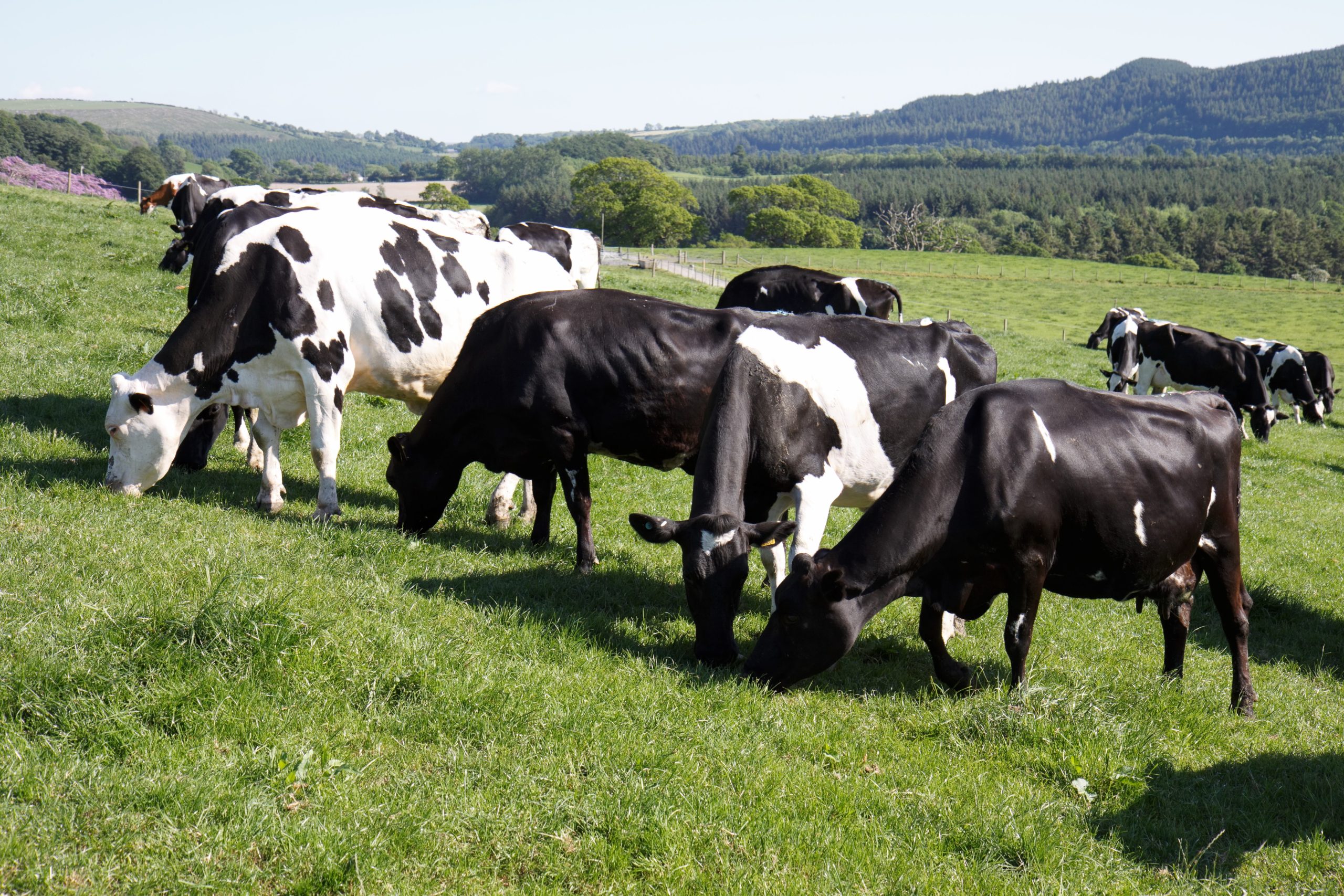
INNOVATIVE strategies to significantly reduce high levels of greenhouse gas emissions in the dairy industry are being trialled in a major new research project.
The pioneering initiative will test and assess the effectiveness of a range of science-based solutions aimed at making dairy farming more economically and environmentally sustainable.
A network of 56 dairy farms is being set up across four major dairying regions in the UK, including West Wales and South/South-West England; Northern Ireland; Cumbria and South-West Scotland, and North-West England.
The network will provide a series of demonstration hubs where farmers, industry, scientists and policymakers can work together to deploy and evaluate the impact of the new measures.
Aberystwyth University is one of ten leading research institutions contributing to the UK Dairy Carbon Network project, which is led by the Agri-Food and Biosciences Institute (AFBI).
The project will be developing a toolkit of practical measures which dairy farmers can choose to adopt in a bid to reduce their herd’s carbon footprint.
Options could include:
- improving forage quality through science developed by plant breeding programmes at Aberystwyth University’s Institute of Biological, Environmental and Rural Sciences (IBERS)
- following the latest research on best practice for silage making
- reducing the protein content of dairy cow feeds to improve nitrogen use efficiency.
Professor Jon Moorby, Chair in Livestock Science at Aberystwyth University, said: “Dairy cows contribute significantly to Wales’s rural economy and produce high quality food for people from grass and other forages. However, cows, like other ruminant animals, produce greenhouse gases like methane as a by-product of converting grass into milk.
“Many dairy farmers are already taking steps to help minimise greenhouse gas production from their cows and this project aims to demonstrate further what can be achieved across all types of dairy farms to help improve their sustainability. This is a collaborative initiative and we want to work closely with farmers as well as the wider industry and policymakers.”
Professor Steven Morrison, Head of Sustainable Livestock Systems at AFBI, said: “Our goal with the project is to drive meaningful change in the dairy sector by applying research directly to real-world farming conditions and measuring the impact.
“By working closely with farmers and using advanced measurement and modelling techniques, we aim to measure and report significant reductions in the carbon emissions from dairy farming in the UK. During the formation of the project, the interest from across the agricultural sector was immense, with over 50 organisations offering support and indicating a willingness to get involved in the project once commissioned.”
The UK Dairy Carbon Network Project is funded by the UK Government’s Department of Environment, Food and Rural Affairs (Defra). Led by AFBI, the UK wide consortium of organisations also includes the Agriculture and Horticulture Development Board (AHDB); AgriSearch; UK Agritech Centre; ADAS; Aberystwyth University; Queen’s University Belfast; Harper Adams University; University of Reading; Newcastle University and Scotland’s Rural College.
Farming
Farmers urged to monitor winter wheat as early yellow rust raises concerns
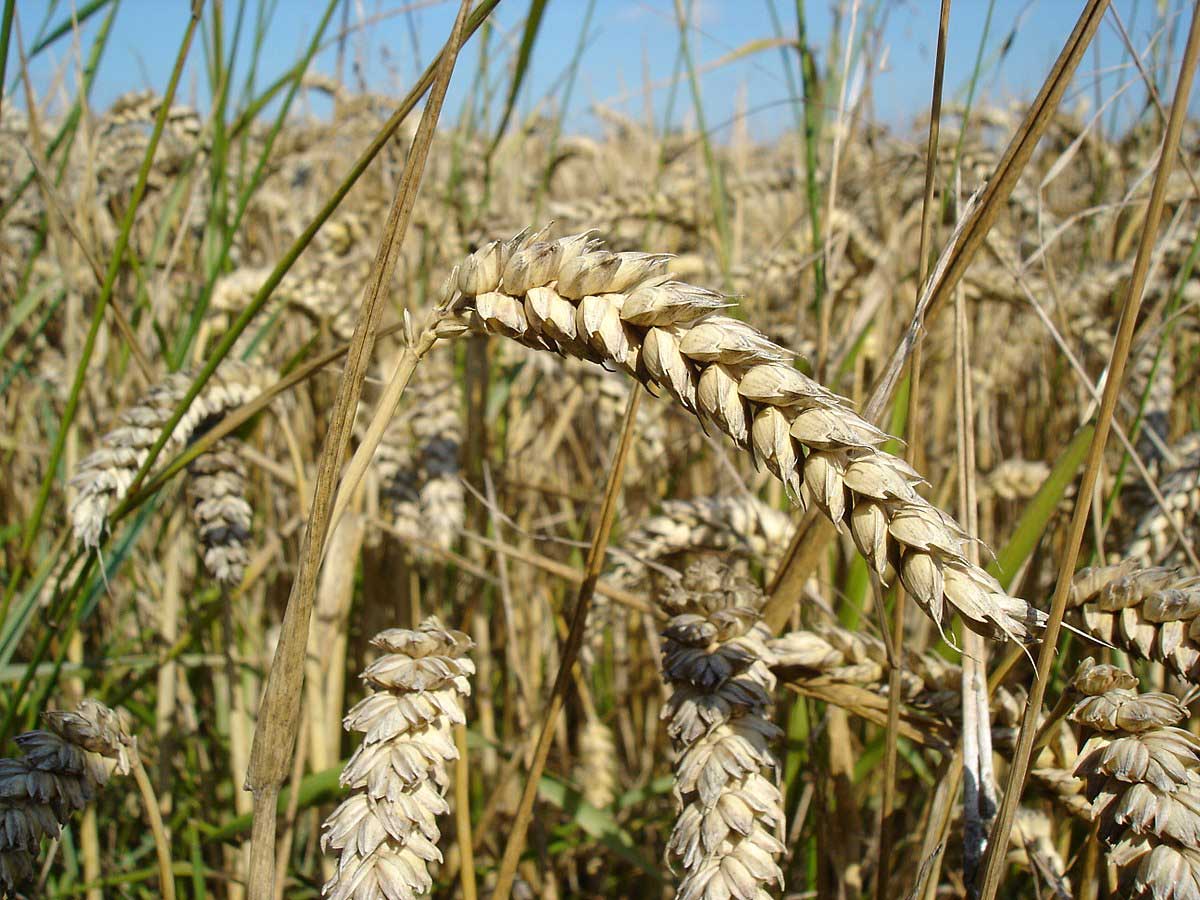
UNUSUAL early observations of yellow rust on several winter wheat varieties in some Recommended Lists (RL) trials mean farmers will need to monitor crops more closely and not rely on RL disease ratings this season, according to the Agriculture and Horticulture Development Board (AHDB).
Recent RL trial inspections in the North of England have found signs of the foliar disease on several varieties classified as resistant at young plant stage in the latest RL (2025/26), including some varieties that are widely grown. There are also the first hints of something unusual starting to happen in other RL trial regions.
As the yellow rust pathogen population is highly diverse, it is not unusual to detect new strains. However, these early observations suggest that there may be a significant new strain or strains in the UK pathogen population that we have not seen before.
Interestingly, some varieties historically classified as susceptible at the young plant stage are currently relatively clean at the impacted trial sites. This suggests a potential pathogen population shift that may have displaced some other yellow rust strains.
AHDB Senior Crop Production System Scientist, Mark Bollebakker, responsible for managing the RL trials, said: “The trials in question were at about growth stage 30 at the time of inspection, so adult plant resistance had not kicked in. When it does, from stem extension onwards, these varieties may outgrow initial infection. However, it is difficult to predict what will happen. We have sent samples to UKCPVS for testing to give us a better understanding of what we are seeing.”
With a very fluid situation, farmers and agronomists should inspect all varieties prior to final spray decisions and not rely on the RL ratings until we know more.
AHDB trial inspectors are assessing the situation and further updates will be issued as soon as possible.
More information can be found at: Has the winter wheat yellow rust population shifted? | AHDB
Farming
Farming Connect mentor involved with the latest series of ‘Our Dream Farm’
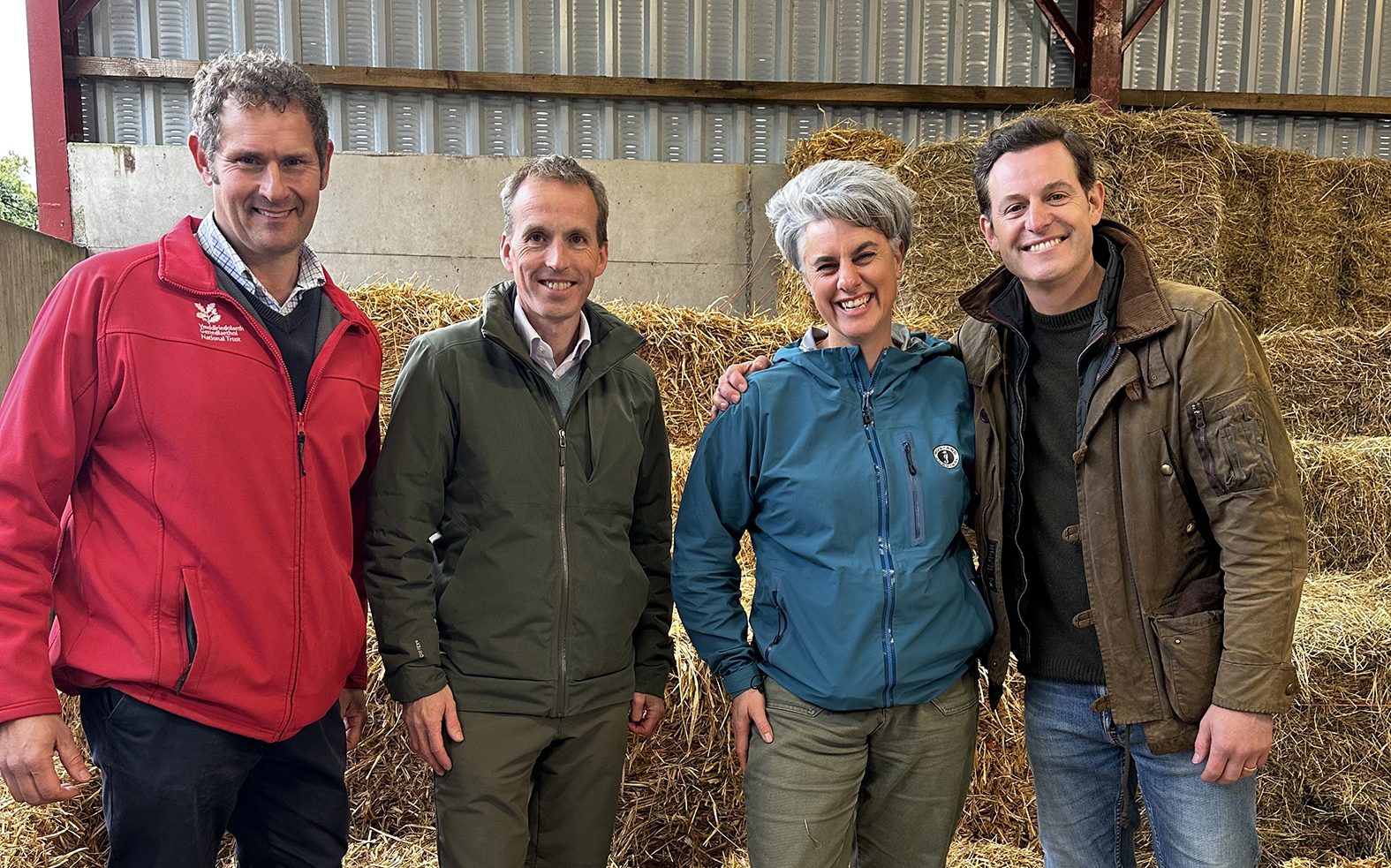
CATCH up with the trials, tribulations and triumphs of the finalists in the second series of ‘Our Dream Farm’, Channel 4’s popular tv programme, who are currently on our screens at 7pm on Saturday evenings; the ‘dream farm’ is in Eryri – formerly known as Snowdonia – and Farming Connect has been part of the process!
You can watch the final group of seven, ultra-hopeful candidates – some filmed with supportive better halves or relatives – as they are put through their farming paces in the second series of ‘Our Dream Farm’. Presented by popular tv personality, farmer and countryside expert Matt Baker, this year’s ‘dream farm’ with its mix of mountain pasture, woodlands and lowland is in one of the most jaw-droppingly spectacular locations in Wales.
Acknowledged as ‘the opportunity of a lifetime’, a 15 year-long tenancy of the 248-hectare farm, which includes a beautifully refurbished house and numerous outbuildings owned and managed by National Trust Wales, is the amazing prize up for grabs.
Farming Connect became part of the selection process when one of its mentors and Agrisgôp Leaders, Caroline Dawson, was invited to mentor and tutor the finalists in an on-farm workshop she designed and led. Caroline, a specialist diversification and agri-food expert from North Wales, began her day with an ice-breaker activity.
“I asked each member of the group to sketch a picture of themselves and list their strengths.
“There were lots of incredulous laughs at first but they all quickly realised the real challenge had started, because it’s not easy to describe yourself in a way that demonstrates what makes you more knowledgeable, more focused, more tenacious and more able – in other words the best tenant – to manage this amazing farm,” said Caroline.
Throughout the duration of Caroline’s day-long workshop, which took place in one of the farm’s specially re-purposed ‘picture perfect’ barns, eagle-eyed judges Giles Hunt, Land and Estates Director for the National Trust and Trystan Edwards, General Manager for Eryri National Trust Cymru joined Matt Baker to observe the whole process as Caroline put the final seven – whittled down from the original 11 applicants – through a series of exercises.
National Trust Cymru purchased this farm in 2012, following a successful public appeal. Until 2020 they ran it in partnership with Wales YFC, after which it was managed by five YFC scholars through subsequent shorter-term tenancies. The conservation charity now wants to hand over the reins longer term, giving the new tenants sufficient time to combine sustainable land management and conservation principles with developing a resilient, profitable, diversified farm business. In addition to managing the farm’s sheep flocks, they will need to implement a new business plan which capitalises on the high number of tourists who visit Eryri each year.
The steep surrounding land is insufficiently productive for large stock numbers but there is significant potential to diversify. Caroline, an experienced facilitator, devised activities that required each contestant to explain how they planned to capitalise on the opportunities to attract, accommodate and manage revenue-earning activities for the nature lovers, walkers, climbers, cyclists and water-sports enthusiasts who flock to the area every year. Each candidate had to demonstrate their vision, showing they had the confidence and ability to produce and implement the best business plan to preserve the heritage of the farm with its unique biodiversity, while safeguarding its long-term viability through tourism.
Each programme in the current series will feature various challenges and practical exercises with applicants eliminated one at a time until the names of the winner are revealed in the final episode of Series 2.
“Tenancies of this calibre are extremely rare. I feel hugely privileged to have met each of the brilliant candidates and played some small part in a process that will lead to a life-changing opportunity for the ultimate winner or winners,” said Caroline.
-

 Business6 days ago
Business6 days agoSpaceX eyes Milford Haven for new UK facility
-

 Crime7 days ago
Crime7 days agoPembrokeshire farm worker accused of threatening to burn employer’s farm
-

 Crime6 days ago
Crime6 days ago‘Yeah but no but’ insult to female officer lands Monkton man with court fine
-

 Features6 days ago
Features6 days ago‘We weren’t wild. We were unprotected’: A generation groomed and forgotten
-

 Crime6 days ago
Crime6 days agoLeaked messages reveal shocking culture at HMP Parc amid misconduct probe
-
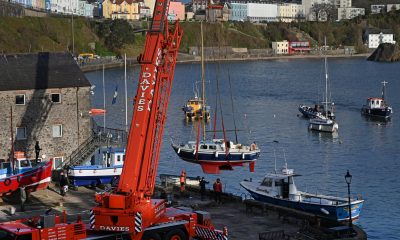
 Community7 days ago
Community7 days agoTenby boat lift signals start of tourist season in Pembrokeshire
-
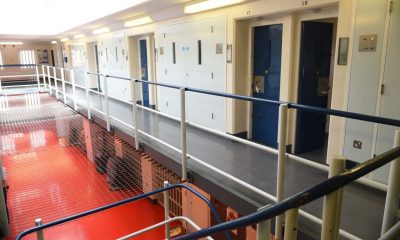
 Crime6 days ago
Crime6 days agoInquest reveals tragic consequences of inadequate medication in prison
-

 Crime6 days ago
Crime6 days agoPub worker gets suspended sentence for failing to do unpaid work































